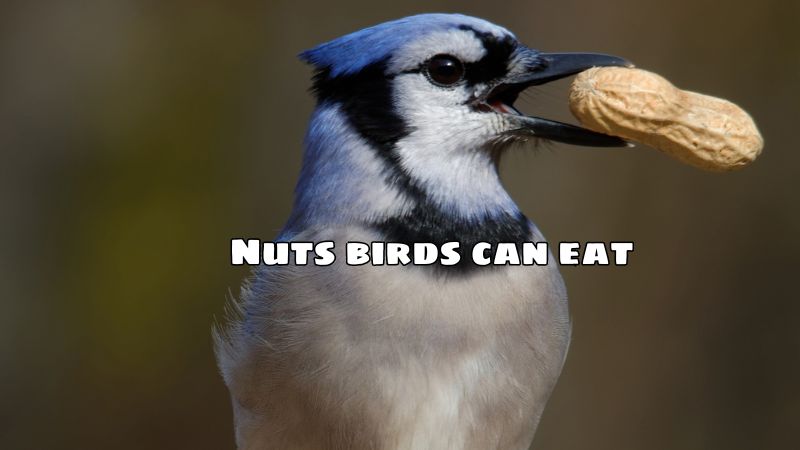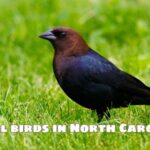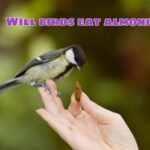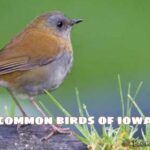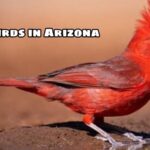Nuts birds can eat, but before birders go crazy offering different types of nuts to their backyard birds, it is important to understand why nuts are nutritious for birds, which nuts are best, and how to offer them safely. Let’s explore Nuts birds can eat – 5 types of nuts with birdsofjoy.com.
Why seeds are good for birds
Seeds are a quick, easy food to add to your backyard feeder – they’re easy to store, relatively clean and low-mess, and they stay fresh for a long time. But while they’re a great choice for backyard birders, seeds are even better for backyard birds.
Seeds are high in fat and calories, which provide a great source of energy, especially during migration or in the fall and winter when temperatures drop and birds need to store fat or use more energy to stay warm.
Whole or shelled seeds are both hardy and easy for birds to store, allowing wintering birds to store a healthy, nutritious food source that they can use when other food sources become scarce.
When birds bury seeds from native trees and shrubs but don’t return to the exact spot where they stored the food, the seeds are naturally reseeded and have the potential to germinate and grow. This restores habitat and provides more food for future birds.
Nuts birds can eat – 5 types of nuts
Black Sunflower Seeds
Some people prefer them to peanuts because they are a great snack all year round. The darker the oil content, the more nutritious the product. Shelled sunflower seeds, called sunflower seeds, are a popular snack.
Nyjer Seeds
They are high in oil, and they are small and black. However, they will need a certain type of seed feeder. In addition to goldfinches, black-tailed finches, and green finches, they are also popular with finches and house sparrows. Woodpeckers and nuthatches are also commonly seen.
Corn
Corn is a favorite food of pigeons, turkeys, quail, and ducks. Red-bellied woodpeckers are attracted to backyard feeders containing whole corn kernels. Doves, crows, and squirrels. Crows and starlings are also attracted to it. Corn is a good source of carbohydrates and lipids; however, it lacks protein compared to other foods.
Millet
Red, white, and yellow millets are all varieties of millet. Many waterfowl and herbivores hunt Japanese millet.
Millet seed coats are tough enough to withstand abrasion but not so tough that birds can break them to the point where they cannot eat them. Millet grows best on the ground or in low feeders.
Macadamia nuts in shell
Macadamia nuts are safe for birds to eat, as long as they are eaten unsalted and uncoated. For smaller birds that may eat small shelled macadamia nuts, the shell must be removed first before cracking them open to make them easier to eat. You will see more of the nuts fall to the ground if you do not crush them all. These nuts are beneficial because they have a higher fat content. We had a family of cardinals visit while I was sorting nuts and they waited for me to crush a macadamia nut for them to eat as a treat.
Peanuts
Birds such as thrushes, sparrows, and wrens may be attracted to nuts that have been crushed or ground into powder. Peanuts can be found in both coal finches and nuthatches.
Avoid eating roasted and salted peanuts. Be aware that peanuts are at a higher risk of containing aflatoxin. If you see black mold on the shell, do not feed them to your birds. Peanuts should generally not be fed to pet birds because of this risk, but if you do feed them, make sure to buy from a reputable retailer and feed sparingly.
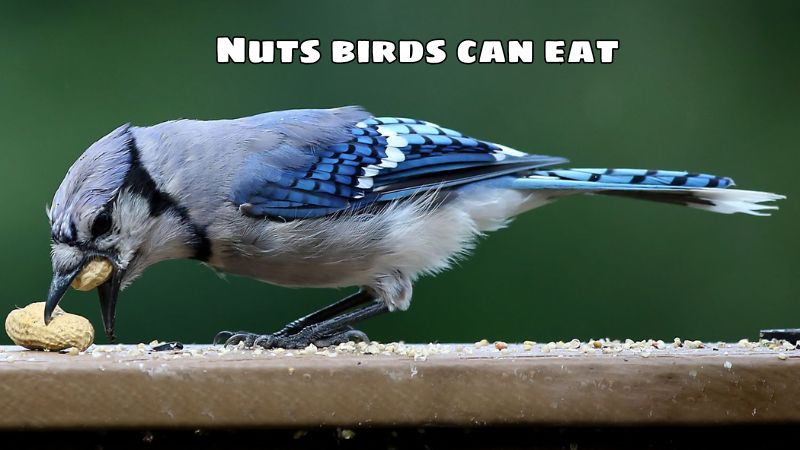
Seed-Eating Birds
A variety of birds will try seeds at backyard bird feeders, depending on how the seeds are offered. When large, unshelled seeds are offered, they often attract…
Magpies, jays, and other crows have strong, hard beaks
Woodpeckers will happily crack open even thick seed shells
Turkeys, ducks, and other large birds may eat whole seeds
When nuts are shelled or offered in small pieces, smaller seed-loving birds flock to the counter. Breaking up the seeds makes them easier for birds with smaller beaks to enjoy, including…
- Sparrows
- Climbing Trees
- Woodpeckers
- Sparrows
- Wrens
Even more unusual birds will try seeds, especially when the seeds are easily accessible or offered in a variety of other foods. Wrens, juncos, and cardinals are all known to occasionally eat seeds.
Feeding Backyard Seeds
Offering seeds to backyard birds can be as easy as throwing a handful of seeds on the ground, patio, or deck, or adding a few seeds to a dish or feeder. However, taking a few extra steps and thinking carefully about the most nutritious options for birds can make seeds a better choice for bird food.
Seeds can be offered whole, shelled, in pieces, or even as nut butter. Offering more than one type of seed can attract both large and small birds who enjoy these treats.
Offer seeds in a dedicated bird feeder with large holes for easy access, or choose a bird seed mix that has seeds in the mix. Seeds can also be found in many lard mixes and seed cakes.
Offer only raw or roasted seeds, not salted, seasoned, or flavored seeds. The added flavor may not be good for birds and may attract unwanted pests to wildlife.
Take steps to protect bird feeders from squirrels, raccoons, and other animals that may also eat a lot of seeds, or limit the amount of seed you feed each day to just enough for the birds to eat.
Consider planting seed-bearing trees or shrubs in your yard for a natural, renewable food source, as well as good cover for birds even when the seeds are not ripe.

